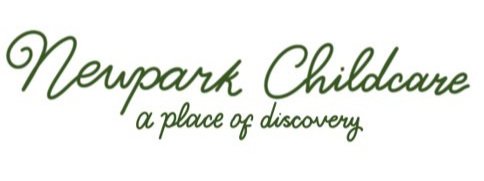Real life and purposeful activities at home
A huge part of the motivation behind the activities and materials on offer at Newpark is to help the children become increasingly independent. Independence is both a growing set of skills and also a growing mindset that says "I want to do it by myself". This can be clearly seen in the milestones children achieve throughout their earliest years - birth, weaning, walking, toilet training, speaking, forming friendships and attachments with others outside the immediate family. Our children need us as teachers and parents to do all we can to assist them on this journey towards complete independence upon reaching adulthood.
As a result of this inner drive towards ever increasing independence, the children are extraordinarily capable of performing small tasks if given the right tools and direction. What Montessori helps us realise is that the tasks children want to take part in most of all are real tasks from everyday life, because not only are these the things they see their parents do and therefore understand them to be of significance, but also they derive a tremendous sense of achievement - together with a little neurological dopamine rush - when completing these real and purposeful tasks. The intrinsic reward a child feels when fastening their own coat or pouring their own milk on their cereal is much more powerful than during role play and is what helps children to build their confidence and self-esteem.
There are so many lovely tasks that children can do at home which will help them to continue the developmental work that they are doing at nursery. Helping out with everyday life at home is one of the ways your child will feel like a valuable member of the family - and it might even help parents out too!
Here are some suggestions. You should take into account your child's specific abilities and maturity level when assigning tasks. This is a list of possible tasks that most children in each age group are able to do. You can select the number that you feel is appropriate for your child. Remember to show the child how to do something first beforehand and supervise closely until you feel they have mastered it.
Toddlers (18 months to 3 years):
● Pick up/ put away toys - assign a box or shelf for lounge toys and one for their bedroom to help children remember where they live.
● Unload the dishwasher (silverware, plastic cups, tupperware)
● Dust with feather duster/microfibre cloth
● Sweep the floor - buy a child sized broom
● Put clothes in the dirty clothes basket
● Help move clothes from washer to dryer (if at child's height)
● Put clothes away
● Make their bed
● Wipe kitchen cabinets and baseboards (using a bucket of soapy water)
Preschoolers (ages 4–5)
● Any previous tasks
● Load the dishwasher
● Vacuum sofa/ chairs/ cushions
● Set table - use a basket for carrying things to the table
● Clear the table
● Wash dishes (with supervision)
● Clean windows - buy a mini spray bottle and squeegee
● Wipe out bathroom sinks
● Match socks
● Fold dish towels
● Weed flower beds
● Water indoor plants
● Feed pets - portion control beforehand
Early Primary (ages 6–8)
● Any previous tasks
● Meal prep (wash produce, find ingredients, simple cutting)
● Sweep
● Vacuum
● Put rubbish in the bin
● Collect post
● Fold/hang laundry
● Clean microwave
● Rake leaves
Don't forget to give them enough time to complete a task - it will take them longer than us because they will be as fascinated by the process as by the end result! You also will not need to put a star chart or rewards sticker system in place - your child will get all the reward they need from your thanks and that lovely feeling of a job well done!

